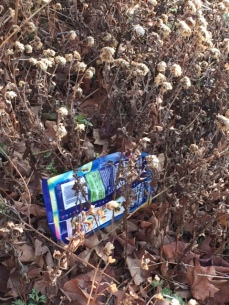In a follow-up conversation to last weekend’s Trinity Institute event at the Cathedral, some of us were discussing ways in which the behavior of liberal whites—white folks who consider themselves anti-racist—can unintentionally harm the black folks with whom we want to ally ourselves. The event was entitled Listen for a Change: Sacred Conversations about Racial Justice, and the Cathedral was a partner site. Local participants had been chagrined that only white people had shown up—so who were we going to listen to, other than the speakers? After reading a blog post about how white folks emotions about race tend to take up all the oxygen in a mixed room, however, we were remarking that maybe that was why no black parishioners had come, and maybe that was a good thing. White folks do need to process their feelings about racism, but black folks don’t need to sit around and listen to/comfort us in that processing.
Now at Holy Trinity, our circumstances and the Holy Spirit often conspire to place us right in the middle of practice before we even suspect we need some theory. We are learning what it takes—how we ourselves need to progress—to integrate our parish into the life of our neighborhood. Then someone shared another blog post, entitled, To the White Parents of my Black Son’s Friends. Written by the white adoptive mother of a black child, the article explores the ways in which double standards play out in the trans-racial sandbox.
This got me thinking about the five black children we baptized along with their mother a few weeks ago. Almost all of their baptismal sponsors were white, and since in baptism we have adopted them as Christ’s own and thus our own, we have entered into a transracial adoption of sorts. I suspect that we will face many situations where white sponsors make mis-steps in our efforts “to support these [black] persons in their life in Christ.” So here’s my adaptation, for us as the white sponsors (and priest) of our newly baptized black parishioners:
1. In places like the Episcopal Church, “it is easy to use words like ‘colorblind’ and feel like we’re enlightened and progressive,” but racism does persist in our society and runs deep in the history of our church. Our “colorblindness” may be blinding us to “the uniquely dangerous situations our [children] can find [themselves] in” as they navigate this confusing world.
2. The fact that “when white kids do it it’s ‘kids being kids,’ but when the kids of color are involved it’s got to be addressed by authorities shows the underlying bias of” our assumptions about who knows what about parenting. What we experience as “concern,” may feel like harassment to the already stressed neighborhood parent whose care we are interrogating. Listen first, and offer some moral support for her in her efforts, before jumping to conclusions about what looks to you like neglect.
3. We need to talk about racism. When we see these our newly adopted children “being bullied or called racist names, [we] need to stand with [them]. [We all] need to understand how threatening that is and not just something to be laughed off.” When we are together, and “the police drive by, tell [yourself] to stay. Just stay right there. Be a witness. In that situation, be extra polite, extra respectful. Don’t run and don’t leave” our children by themselves.
4. We like to pride ourselves in the Episcopal Church as people “who don’t do guilt or shame.” When we are reminiscing or talking about ethical matters with these our newly adopted children, however, “this is not the time to [condone] any risky behaviors. Whatever trouble you [may once have gotten] into, [they] will likely not be judged by the same standard you [were]. Be understanding that [they] can’t make the same mistakes you can. This means we as adults have the much more difficult job of practicing mercy rather than simply downplaying sin.
5. “Treat [our children] with respect. Don’t rub his head because you want to know what his hair feels like. Don’t speak black slang to [her] because you think it would be funny. If you’re thinking about making a joke that you feel might be slightly questionable, just don’t do it. Ever. [Our] kids are listening and learning from you even in the jokes you tell. Be conscious of what media messages [our] kids are getting about race. Engage in tough conversations about what you’re hearing in the news. Don’t shy away from this just because you can. [They] can’t. We can’t.”
6. “Be an advocate for [these] beautiful souls who [have] eaten [with you at God’s] table, sat next to [you] at church.” They are not “the exception to the rule.” They are “not protected by [your] white privilege” now, nor will they be for the rest of their lives. They are “not inherently different from any other little black [children] and ALL their lives have value and worth and were created by God.”
Much of this advice was intended for parents to teach their children, but we adults are as much in need of the advice as kids are. May God bless you in your sponsorship of our children, even as we all stumble along the road to justice.


